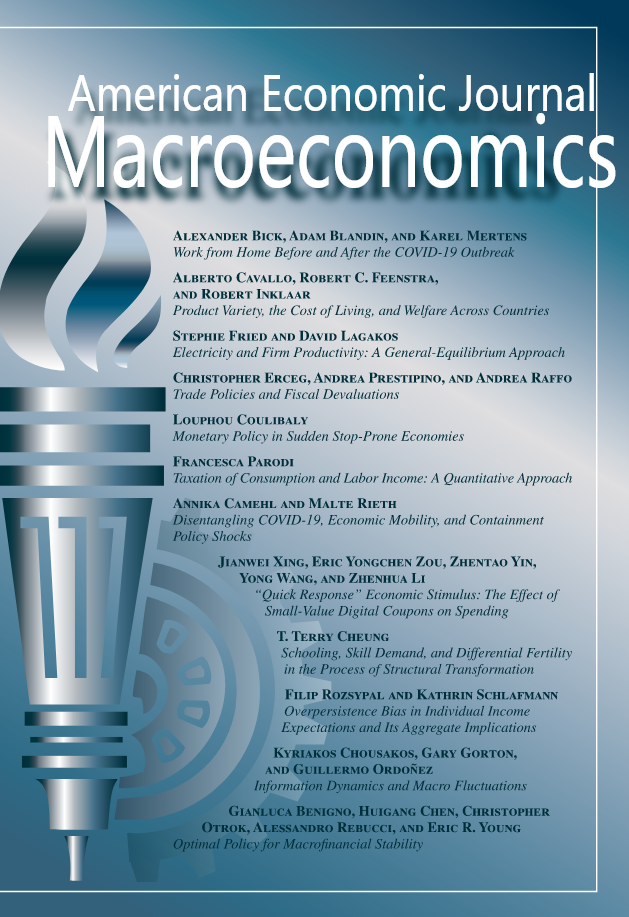少而精:突然止损、公司进场和金融选择
IF 5.7
1区 经济学
Q1 ECONOMICS
引用次数: 0
摘要
我们开发了一个易于处理的定量框架来研究金融危机对生产率的影响。该模型的特点是内生生产率、异质企业动态和总风险。对最有前途的想法的选择导致了在进入队列的质量(数量)和构成(质量)之间的权衡。1998年俄罗斯主权债务违约引发的智利工厂水平的数据证实了该模型的主要机制,因为在信贷短缺期间诞生的公司数量较少,但在特殊生产率方面却更好。定量分析表明,在危机结束时,总产出将永久性下降0.9%。(jd22, e32, f41, g01, o11, o14, o33)本文章由计算机程序翻译,如有差异,请以英文原文为准。
Fewer but Better: Sudden Stops, Firm Entry, and Financial Selection
We develop a tractable quantitative framework to study the productivity effects of financial crises. The model features endogenous productivity, heterogeneous firm dynamics, and aggregate risk. Selection of the most promising ideas gives rise to a trade-off between mass (quantity) and composition (quality) in the entrant cohort. Chilean plant-level data from the sudden stop triggered by the Russian sovereign default in 1998 confirm the model’s main mechanism, as firms born during the credit shortage are fewer but better in terms of idiosyncratic productivity. The quantitative analysis shows that at the end of the crisis, total output is permanently 0.9 percent lower. (JEL D22, E32, F41, G01, O11, O14, O33)
求助全文
通过发布文献求助,成功后即可免费获取论文全文。
去求助
来源期刊

American Economic Journal-Macroeconomics
ECONOMICS-
CiteScore
8.20
自引率
1.70%
发文量
58
期刊介绍:
American Economic Journal: Macroeconomics focuses on studies of aggregate fluctuations and growth, and the role of policy in that context. Such studies often borrow from and interact with research in other fields, such as monetary theory, industrial organization, finance, labor economics, political economy, public finance, international economics, and development economics. To the extent that they make a contribution to macroeconomics, papers in these fields are also welcome.
 求助内容:
求助内容: 应助结果提醒方式:
应助结果提醒方式:


